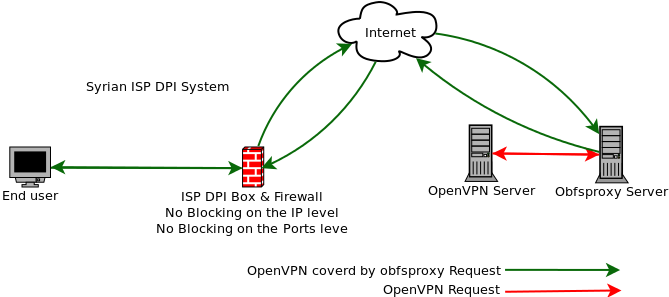
Updated: December 21, 2018 / » » A virtual private network (VPN) is a private data network that makes use of the public telecommunication infrastructure(Internet), maintaining privacy through the use of a tunneling protocol and security procedures. The idea of the VPN is to give a company or a person the same capabilities at much lower cost by using the shared public infrastructure rather than a private one. In our case, we use a VPN to connect you to our servers in Europe and Asia. Related Article 2019 ➤ • Protect your computer from internet attacks and intrusions. • Prevents from unauthorized access your computers from internet.
• Filter network spam by our servers firewall system. • Anonymize and secure all your Internet traffic and replace your ip address.
Downloads - Tunnelblick Free open source OpenVPN VPN client server software for Mac OS X and macOS. Includes OpenVPN, OpenSSL, easy-rsa, and drivers. VPN Client - best Free VPN service for Mac. This VPN service provides a Free 7 days unlimited private internet access. It provides 90+ VPN Servers, Streaming server, Optimal and Personal VPN servers. Personal VPN Servers are available on demand within 24 hours from the moment of request.
• Works with VOIP software, web browsing, e-mail, p2p, ftp, instant messaging, streaming, games etc. If free VPN is not your cup of tea or you find them unreliable, do give this paid VPN a try. Based on my own experience, VyprVPN is really reliable and good, they are from Germany and they have their own unique ‘Chameleon’ technology that sets them apart from other VPN that uses the same open source technology. • 700 Servers 50 Locations Together with a VPN service, they creat a connection called VPN. This is a secure connection that encrypts all your information and is not readable by anyone else so wherever you are your privacy is always maintained!
The best part is, there is no software to install because most VPN works on all Platforms including Windows, Mac, Linux, IPhone etc using the build in VPN software in your operating system. Without further ado, here are 9 Open Source VPN that can be used with VPN Gate. ↓ 01 – Linux Libreswan is a free software implementation of the most widely supported and standarized VPN protocol based on (“IPsec”) and the Internet Key Exchange (“IKE”).
These standards are produced and maintained by the Internet Engineering Task Force (“IETF”). Libreswan performs some additional hardening for the IKEv1 protocol that other implementations have not implemented. This is not a vulnerability and CVE-2016-5361 was issued erroneously. ↓ 02 – Linux OpenConnect is an SSL VPN client initially created to support Cisco’s AnyConnect SSL VPN. It has since been ported to support the Juniper SSL VPN which is now known as Pulse Connect Secure. OpenConnect is released under the GNU Lesser Public License, version 2.1. Like vpnc, OpenConnect is not officially supported by, or associated in any way with, Cisco Systems, Juniper Networks or Pulse Secure.
It just happens to interoperate with their equipment. Development of OpenConnect was started after a trial of the Cisco client under Linux found it to have many deficiencies: • Inability to use SSL certificates from a TPM or PKCS#11 smartcard, or even use a passphrase. • Lack of support for Linux platforms other than i386. Format my passport mac for windows. • Lack of integration with NetworkManager on the Linux desktop. • Lack of proper (RPM/DEB) packaging for Linux distributions.

• “Stealth” use of libraries with dlopen(), even using the development-only symlinks such as libz.so — making it hard to properly discover the dependencies which proper packaging would have expressed • Tempfile races allowing unprivileged users to trick it into overwriting arbitrary files, as root. • Unable to run as an unprivileged user, which would have reduced the severity of the above bug. • Inability to audit the source code for further such “Security 101” bugs. Naturally, OpenConnect addresses all of the above issues, and more. • Connection through HTTP proxy, including libproxy support for automatic proxy configuration.
• Connection through SOCKS5 proxy. • Automatic detection of IPv4 and IPv6 address, routes. • Authentication via HTTP forms. • Authentication using SSL certificates — from local file, Trusted Platform Module and PKCS#11 smartcards. • Authentication using SecurID software tokens (when built with libstoken) • Authentication using OATH TOTP or HOTP software tokens.
• Authentication using Yubikey OATH tokens (when built with libpcsclite) • UserGroup support for selecting between multiple configurations on a single VPN server. • Data transport over TCP (HTTPS) or UDP (DTLS or ESP). • Keepalive and Dead Peer Detection on both HTTPS and DTLS. • Automatic update of VPN server list / configuration. • Roaming support, allowing reconnection when the local IP address changes. • Run without root privileges. ↓ 03 – Linux Openswan is an IPsec implementation for Linux. Deleting blank cells in excel for mac.